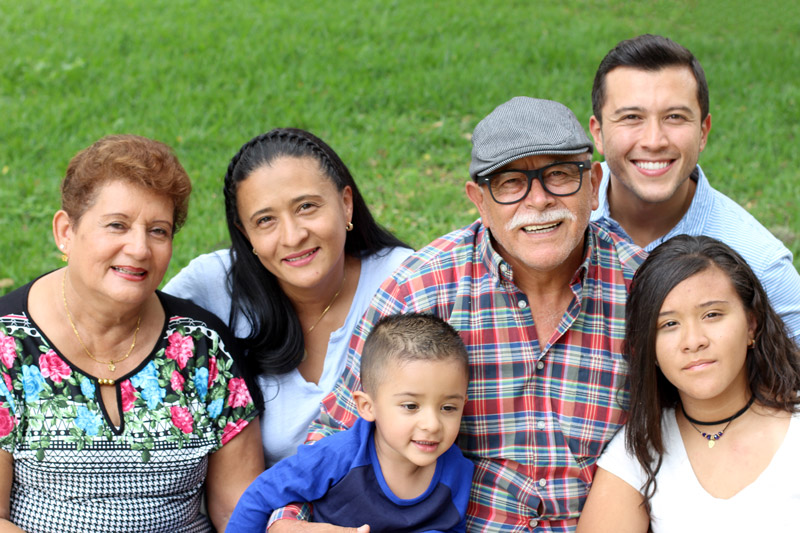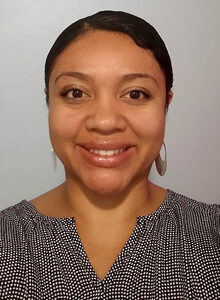Latine* caregivers of recently diagnosed children on the autism spectrum have unique needs and face unique challenges in supporting their children (Blacher et al., 2019). Latine families report feeling overwhelmed, confused, and concerned with information about the incidence of autism, the complexity of the diagnosis, and how to approach advocacy and support. Knowledge and contemporary issues in autism are continuously evolving and recent developments in our understanding of autism could support Latine caregivers. For instance, a vibrant neurodiversity paradigm offers new perspectives about autism and highlights the need for a social paradigm shift towards acceptance and accommodation of autistic people. In part, the neurodiversity movement is a response to the lack of awareness and understanding of how an autistic person thinks, lives, and feels. Although the emergence of the neurodiversity movement dates to 1999, there is limited awareness of the movement among the Latine community and how this perspective may impact perceptions of autism and child’s prognosis. Specifically, Latine caregivers with very young children may only have exposure to the medical model of disability rather than a neurodivergent lens (Cascio, 2019). Thus, their perspectives may be limited to their child’s pediatrician’s awareness of autism, limited resources in their community, limited public awareness, and cultural stigmas.

What We Know About the Autism Latine Community in the US: Risk and Resilience Factors
Latine families are a large sector of the U.S. and are a heterogenous group, representing over 20 countries, speaking diverse languages including: Spanish, Portuguese, and indigenous languages (e.g., Nahuatl). Given the complexity of this group, it is important not to ascribe the same perceptions and beliefs to all Latine people. However, research has highlighted some common themes that emerge in the Latine autism community that may guide practitioners in culturally responsive care.
Some risks factors for the Latine population include limited awareness of autism and how it will affect their child (Rivera-Figueroa et al., 2022). This may be due to many Latine children having an autism diagnosis 2.5 years later than non-Latine children (Lopez et al, 2020). This delay of diagnosis causes parents to experience delays in learning about evidence-based practices (Lopez et al.). Once early autism intervention services are secured, caregivers report limited direct coaching models within this system of care (Hampton et al., 2023), which perpetuates the cycle of disparity. Within their communities, caregivers report high levels of stigma associated with autism, for example some Latine families report feelings of embarrassment, rejection, and family burden, which contribute to caregivers’ reluctance to raise developmental concerns with providers (Zuckerman et al., 2014). Some Latine families believe their child will grow out of their symptoms which can cause further delay in pursuing diagnosis and interventions (Rivera-Figueroa et al. 2022). Finally, Latine families also feel discomfort and mistrust with professionals due to cultural and language differences in expressing their anxieties.
Resilience represents a shift in understanding factors that may impact a family’s experience from a deficit orientation towards a more holistic and contextualized lens, focusing on strengths and healthy adaptation. In the literature, family resilience is defined as the “characteristics, dimensions, and properties which help families to be resistant to disruption in the face of change and adaptive in the face of crisis situations” (McCubbin & McCubbin, 1988, p. 247). Broadly, Latine caregivers share several assets or promotive factors – including characteristics of individuals (e.g., optimism, bilingualism) and families (e.g., family cohesion, intergenerational households, family support and stability) that increase the likelihood of positive outcomes (Cabrera et al., 2022). Though limited, research with Latine caregivers of autistic children have found that Latine families often report lower levels of parenting stress, coping, and negative family impact across time (Hickey et al., 2021). Specifically, Latine parents may be more likely to seek out social support, in line with familismo, a concept referring to the commitment of Latine families to maintaining strong kinship ties, which may serve as a buffer (García-Coll et al., 1996). Further, it is well documented that collectivistic cultures, which are associated with Latine families, place more value and opportunity for caregiving help outside of nuclear families, which in turn could lead to less stress, different coping, and less negative impact on parenting feelings and the parent’s social life. It is important to caution that this can be a source of stress if external family members lack knowledge of autism or deny that the child is autistic.
Cultural Adaptation and Responsiveness
Importantly, parent-mediated interventions include low numbers of Latine caregivers as participants (Nevill et al., 2018), and many specifically exclude bilingual families (McDaniel et al., 2020) or families with limited English proficiency. Given the limited cultural and contextual fit of interventions and the unique needs of the Latine population, significant adaptations are needed in terms of delivery, therapeutic process, inclusion of cultural knowledge, attitudes, and behaviors to make evidence-based practices more culturally appropriate. Although this work is promising, research in this area is limited to teaching direct strategies to caregivers and most cultural adaptations continue to rely on surface-structure adaptations, or changes to the materials, messages, and format of intervention delivery, as opposed to changes to the core components of the intervention that are thought to produce change outlined in the EVF framework (Dubay et al., 2018). However, exciting work in this area has recently emerged, particularly for parent-mediated interventions including cultural adaptations of psychoeducation in autism (Parents Taking Action; Magaña et al., 2017), and acceptance and commitment therapy (ACT; Cañon et al.,2023). Most cultural adaptations use the ecological validity framework to guide the process (EVF; Bernal et al., 1995).
The EVF has been used to adapt interventions to consider eight cultural dimensions that may impact how an intervention is conceptualized and deployed. The eight EVF dimensions: preferred language, attributes of persons involved and their relationship (i.e., therapist, parent, and child), incorporating metaphors (i.e., symbols of the cultural group), considering content (i.e., cultural values and traditions) and concepts (i.e., theoretical orientation and intervention conceptualization), considering culture in determining goals, considering culture in designing methods/procedures of intervention, and considering the context of families during interventions (i.e., economic, social, and community factors) are carefully considered to conduct cultural adaptations. We offer some recommendations and considerations when working with Latine caregivers of autistic children based on the current literature.
Recommendations When Working with Latine Caregivers of Autistic Children
Education and Coaching – Given the limited knowledge of autism reported in the Latine community and the limited interventions on caregiver direct coaching, it is important to integrate education and coaching early on. In addition, exposing Latine families to new knowledge that is constructed and guided by autistic voices can help in their understanding and conceptualization of autism from multiple perspectives (e.g., social model of disability). Thus, providing an opportunity to reflect on their child’s diagnosis in an empowering way that respects and supports their child’s unique needs. Further, this framework could impact engagement in pre- and post-diagnostic services (Hickey et al., 2021).
Cultural Match of Interventions – Interventions are needed that match home language, have strong contextual fit, are motivating (e.g., meaningful, interesting), and relevant (i.e., information can apply to daily life) (DuBay, 2022). These considerations can establish relevance and encourage caregivers to feel invested and engaged.
Supporting Community Acceptance – Given the high stigma reported among the Latine community about autism. It is important to continue to support caregivers by helping to educate community members at large about autism. To become confident advocates, Latine caregivers could benefit from becoming well-versed in who their child is as an autistic individual in a way that empowers them to share with family members and their community.
Considering Intersectionality of Race and Disability – It is important to consider the sociopolitical climate of Latine families that intersects with having a child with a disability (e.g., immigration status, biases), and the social constructs that may influence the autistic person (Casio et al., 2021). Latine families may be dealing with additional trauma and may benefit from having space to talk about experiences specific to their experience.
Positive Reframing – Emerging perspectives, like the neurodiversity paradigm, may help families in their positive reframing of autism and have been shown to improve adjustment in families (Bekhet et al., 2012).
*We acknowledge that both “Latine” and “Latinx” seek to remove gender from the Spanish word Latino. We use Latine as it is native to the Spanish language and can be seen in many gender-neutral Spanish words like “estudiante.”
Roxana Rodriguez, MA, is a Special Education Teacher and Ana D. Dueñas, PhD, BCBA-D, is Assistant Professor at the San Diego State University College of Education Department of Special Education. Watch Dr. Dueñas in the news: Youtube.com/watch?v=f6xMFxTGgVY. For more information, email Dr. Dueñas at adduenas@sdsu.edu.
References
Bekhet, A. K., Johnson, N. L., & Zauszniewski, J. A. (2012). Resilience in family members of persons with autism spectrum disorder: a review of the literature. Issues in mental health nursing, 33(10), 650–656. https://doi.org/10.3109/01612840.2012.671441
Bernal, G., Bonilla, J., & Bellido, C. (1995). Ecological validity and cultural sensitivity for outcome research: issues for the cultural adaptation and development of psychosocial treatments with Hispanics. Journal of abnormal child psychology, 23(1), 67–82. https://doi.org/10.1007/BF01447045
Blacher, J., Stavropoulos, K., & Bolourian, Y. (2019). Anglo-Latino differences in parental concerns and service inequities for children at risk of autism spectrum disorder. Autism : the international journal of research and practice, 23(6), 1554–1562. https://doi.org/10.1177/1362361318818327
Cabrera, N., Alonso, A., Chen, Y., & Ghosh, R. (2022). Latinx Families’ Strengths and Resilience Contribute to Their Well-Being. Bethesda, MD: National Research Center on Hispanic Children & Families. https://www.hispanicresearchcenter.org/research-resources/latinx-families-strengths-and-resilience-contribute-to-their-well-being
Cañón, L. F., Gould, E. R., Sandoz, E. K. Moran, O. & Grimaldi, M. A. (2023). Cultural adaptation of ACT to support caregivers of autistic Latino children: A pilot study. Journal of Contextual Behavioral Science, 28, 1-9. https://doi.org/10.1016/j.jcbs.2023.03.003
Cascio, M.A., Weiss, J.A. & Racine, E. (2020). Making Autism research inclusive by attending to intersectionality: A review of the research ethics literature. Review Journal of Autism and Developmental Disorders, 8, 22–36. https://doi.org/10.1007/s40489-020-00204-z
DuBay M. (2022). Cultural adaptations to parent-mediated autism spectrum disorder interventions for latin american families: A scoping review. American Journal of Speech-Language Pathology, 31(3), 1517–1534. https://doi.org/10.1044/2022_AJSLP-21-00239
García-Coll C., Crnic, K., Lamberty, G., Wasik, B., H., Jenkins, R., McAdoo, H. P. Vazquez Garcia, H. (1996). An integrative model for the study of developmental competencies in minority children. Child Development, 67, 1891-1914. https://doi.org/10.2307/1131600
Hampton, L. H., Herrera-Carrillo, F. E., Vargas Londono, F., Villarreal, E. G., & Martínez Cueto, A. P. (2023). “El camino por recorrer”: Parent perspectives on early autism intervention in mexico. Topics in Early Childhood Special Education, 42(4), 315–328. https://doi.org/10.1177/02711214221081728
Lopez, K., Marroquin, J. M., & Gutierrez, C. (2020). Methods to decrease disparities in age of autism diagnosis and treatment access among latinx children. Social Work, 65(2), 140–148. https://doi.org/10.1093/sw/swaa012
Magaña, S., Lopez, K., & Machalicek, W. (2017). Parents taking action: A psycho-educational intervention for latino parents of children with autism spectrum disorder. Family Process, 56(1), 59–74. https://doi.org/10.1111/famp.12169
McCubbin, H. I., & McCubbin, M. A. (1988). Typologies of resilient families: Emerging roles of social class and ethnicity. Family Relations, 37(3), 247–254. https://doi.org/10.2307/584557
McDaniel, J., Yoder, P., Crandall, M., Millan, M. E., Ardel, C. M., Gengoux, G. W., & Hardan, A. Y. (2020). Effects of pivotal response treatment on reciprocal vocal contingency in a randomized controlled trial of children with autism spectrum disorder. Autism, 24(6), 1566–1571. https://doi-org.libproxy.sdsu.edu/10.1177/1362361320903138
Nevill, R. E., Lecavalier, L., & Stratis, E. A. (2018). Meta-analysis of parent-mediated interventions for young children with autism spectrum disorder. Autism, 22(2), 84–98. https://doi.org/10.1177/1362361316677838
Rivera-Figueroa, K., Marfo, N. Y. A., & Eigsti, I. M. (2022). Parental perceptions of autism spectrum disorder in latinx and black sociocultural contexts: A systematic review. American Journal on Intellectual and Developmental Disabilities, 127(1), 42–63. https://doi.org/10.1352/1944-7558-127.1.42
Zuckerman, K. E., Sinche, B., Mejia, A., Cobian, M., Becker, T., & Nicolaidis, C. (2014). Latino parents’ perspectives on barriers to autism diagnosis. Academic Pediatrics, 14(3), 301–308. https://doi.org/10.1016/j.acap.2013.12.004






